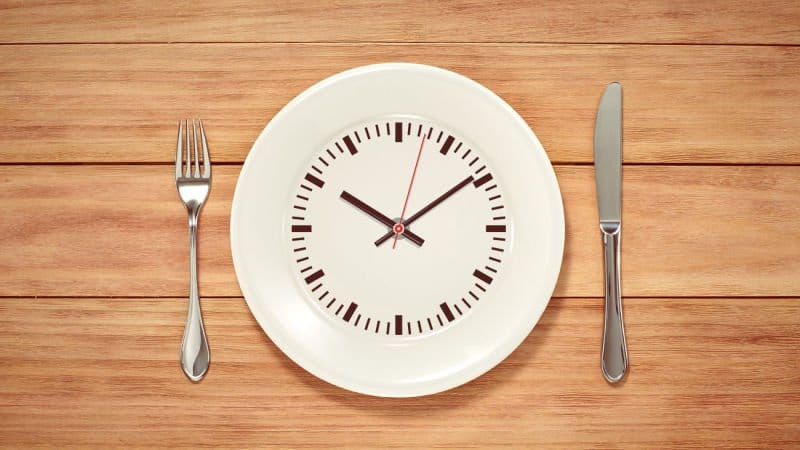Maybe you have tried every diet plan there is – the keto diet, fruitarian diet, you name it – and maybe they worked out well, or didn’t work at all. Maybe you simply got tired of it.
Well, there may be something you have not tried yet. Allow me to guide you to Intermittent Fasting.
However, lets get one thing clear, intermittent fasting is not a diet plan. Not exactly. It is simply an eating pattern, cycling between eating and fasting.
It is more about when you eat than what you eat. There are different types of intermittent fasting but the most common are:
- 16/8 method (also known as leangains protocol)
- Eat Stop Eat method – fasting 24 hours straight for two days a week
- 5:2 diet
Before getting into any of that, lets look at how intermittent fasting made it to today’s world, under the strict eyes of the dietician. Now, fasting has been around for ages. The famous Pythagoras, Socrates, and Plato fasted to purify their spirit, mind and body.
Gandhi apparently fasted seventeen times during his campaign for Indian independence. Fasting is also recognized among many religions such as Islam and Christianity , among others, as a pillar of faith.
It was, however, gained recognition as a method of shedding pounds later on. This was popularized by the American writer, Upton Sinclain in the 1900s.
In August 2012, intermittent fasting gained recognition in the health and fitness committee because of the influence of a doctor journalist, Michael Mosley.
He published a book, The Fast Diet in 2013. Ever since intermittent fasting has been tried by many and yielded worthy results.
Its been practiced by celebrities such as Hugh Jackman and Chris Hemsworth .
How to Do Intermittent Fasting?
As said earlier, there are 3 most common methods of intermittent fasting. Now you should know, fasting in this case does not mean total abstinence. You are advised to drink water.
You can also take tea or coffee but without sugar and cream.
1. 16/8 method
Also known as the lean gains protocol and is the most common method. Probably because many find it easier and much more convenient to fit into their daily schedules. You have, probably, at some point in your life, even done this without actually knowing.
Remember when you had an early dinner the night but then you were too busy in the morning after to bother with an actual meal till a bit afternoon? You do? Well congratulations, you have engaged in the lean gains protocol.
The 16/8 method is all about fasting for 16 hours straight and eating sustainable meals within the next 8 hours. An easy way to do this is to have dinner by 8pm and fast till 12 noon the next day.
That counts 16 hours! And your 8 hours window of eating would last from 12 noon till 8 pm. And the clock continues. You continue this daily for as long as you would like to go, but long enough to see the results. Hey! How about trying it for about 2 weeks and see where that leads?
2. Eat Stop Eat
This is easily the second most common and convenient to do the method. Here, you fast for twenty-four hours straight for two days a week. So basically, when you start the fast by say 8 am, you keep fasting till 8 am, the next day.
Sounds crazy right? I know. But it can be done. I would advise you, however, to try the 16/8 method first before diving right into this. This is so that your body adjusts to not eating for that long.
This method is also at a disadvantage to the 16/8 method because you get tired and weak and you have to keep going till the 24 hours are over. It will be best to do it on a relatively less stressful day or even on the weekend.
3. 5:2 diet
Now, this method is a bit tricky. Here, for two days in a week, you consume only 500-600 calories each day, and you eat normally for the rest of the week. The tricky part is having to be extremely cautious of what you eat and calculating your calorie intake.
Personally, I think being able to do that is a real sport, one I am trying to learn, but I would not place my bet on this method.
Now, that being said, you need to remember to not make the mistake of overcompensating during your meal intake in any of the methods. Intermittent fasting works due to a number of factors but the most important factor is the reduced calorie intake.
When eating, you should not do so with the mind to make up for a lost eating time. Just eat to your satisfaction and comfort.
How Intermittent Fasting Works?
Asides from the reduced calories, intermittent fasting works through other means. It resets and changes your hormone, heals you on a cellular level, and all the way down to your gene expression.
Let’s break it down:
1. Increases the level of human growth hormone
Intermittent fasting multiplies the levels of human growth hormone by nearly 5 times! Human growth hormone, as the name suggests, is one of the hormones in the body that is hugely responsible for growth, as well as other processes in the body.
It increases the number and size of cells by mitotic division and benefits in muscle gain . This is the single reason why intermittent fasting is one of the few weight loss methods that spares muscle loss to a large extent.
It increases the synthesis of protein, which also contributes to muscle gain. HGH also mobilizes fat from adipose tissues in the body, causing fat loss and increases energy yield.
2. Increases insulin sensitivity
Intermittent fasting increases insulin sensitivity, therefore reducing the amount of circulating insulin in the body.
Insulin is responsible for storing sugar as fats so decreased insulin means decreased fat storage. It also makes stored body fat more accessible.
This, coupled with human growth hormone mediated fat mobilization, decreases the amount of fat stored in the body.
3. Cellular repair
Intermittent fasting also induces and increases cellular repair by autophagy, a process which involves digestion and removal of built up protein in cells.
4. Gene expression
There may be some changes in function of genes related to longevity and protection against disease.
5. Powerful weight loss
Eating less is an automatic reduction of calorie intake. Also, asides from the changes in human growth hormone and insulin levels, intermittent fasting affects noradrenaline. It increases its secretion which also helps burn fat.
Studies also show that intermittent fasting increases one’s metabolic rate by 3.6 to 14 percent, which is a very significant difference.
These same studies show that people that engaged in honest and strict intermittent fasting lost 3-8 percent of their body weight over 3-24 weeks with a 3-7 percent loss of waist circumference.
Remember, the major cause of weight loss is the consumption of fewer calories. It’s not smart to overeat during your eating window. Like I said before, eat to your satisfaction and do not binge eat. Also, try to limit it to healthy calories.
Health Benefits of Intermittent Fasting
Studies on intermittent fasting are based on experiments performed on both animals and humans.
The benefits of intermittent fasting that were noticed are:
- Weight loss
- Improved body health and brain functions.
- Longer life: although this is still debated and not entirely certain, increased lifespan has been noticed in some animal experiments.
- Insulin resistance reduction
- Reduced inflammation: studies of intermittent fasting showed reduction in markings of inflammation.
- Heart health: intermittent fasting helps reduce the amount of low-density lipids (LDL) cholesterol, decreases blood triglycerides levels, blood sugar levels, inflammation markers and insulin resistance. All these things contribute to a healthier heart and reduces the risks of heart diseases.
- Cancer prevention: It has been speculated that intermittent fasting may help prevent cancer. This is due to its effect on cell repair and gene expression.
- Brain health: increases levels of brain hormone (BDNF) and aids growth of new nerve cells. It may also protect the brain against Alzheimer’s disease.
- Simpler lifestyle: let’s be honest, intermittent fasting has its advantages in making our lifestyle easier during the fast. I mean, not having to worry about what to have for breakfast or doing dishes after eating. Also, when one gets use to planning their days around intermittent fast, it helps one build up a routine that one gets accustomed to, and routines make life a lot simpler!
Intermittent fasting seems to be more beneficial to men than women because of some of the risk factors related to it are women specific.
This is because it may cause a tilt in the normal hormonal balance and beginners may have amenorrhea (missed menstrual period) and may affect fertility during the period of intermittent fasting.
Fear not, however, as these side effects are not long lasting and may not even present themselves to some women.
Safety measures
As with any diet or procedures that affect our health and body, caution must be taken due to the differences in people. Before getting into intermittent fasting, consult your doctor if you have any medical conditions.
People that are best staying off the fast are:
- Individuals with low blood pressure
- If you are on any medications
- If you are underweight
- If you have a history of eating disorders
- If you are trying to conceive
- If you have a history of amenorrhea
- A pregnant woman
- A woman still breastfeeding.
As said earlier, the fast period does not mean total abstinence from food. Supplements can also be taken so do not lay off any of your daily supplements when fasting except the fat-soluble supplements as they need food to aid in the absorption of the nutrients .









